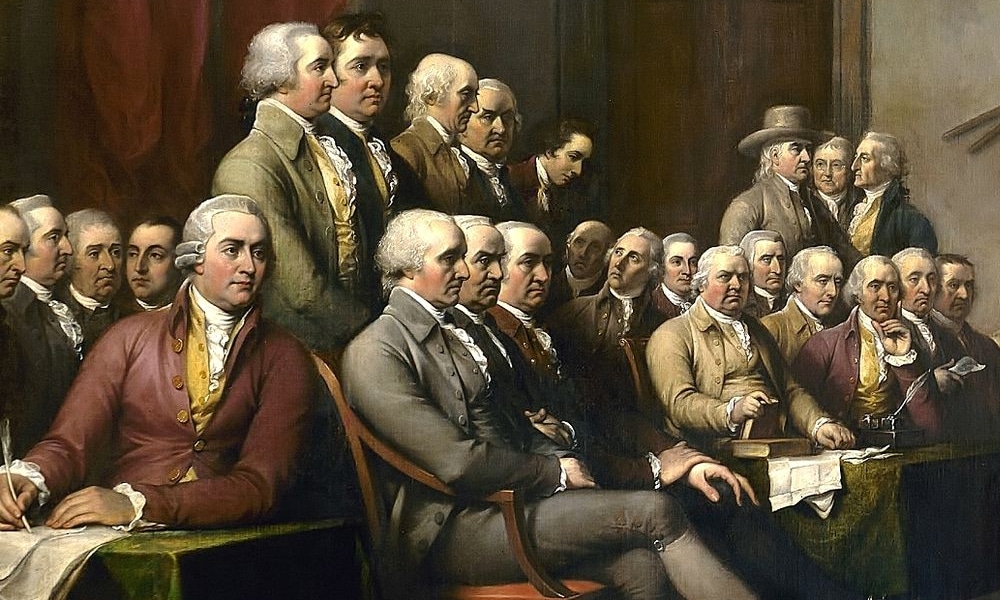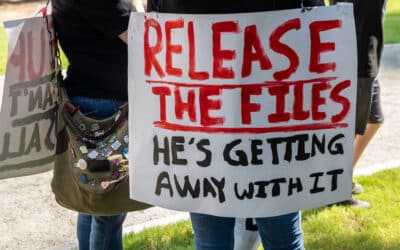We’ve all heard or seen the slogan, “Power to the People,” but it gets things almost completely backwards.
The word “to” is the wrong word, by far.
Under the system and principles of the founders and old revolutionaries, all power comes from the people.
They don’t need to ask for it. They don’t need to beg for it. And they don’t need to demand they get it as a gift from government, or get it back at all.
They just need to take it.
George Mason put it this way in 1775:
“In all our associations; in all our agreements let us never lose sight of this fundamental maxim—that all power was originally lodged in, and consequently is derived from, the people. We should wear it as a breastplate, and buckle it on as our armour.”
This view represented one of the most important principles of the American Revolution. That is, sovereignty—or supreme and final authority—is with the people, not the government.
James Otis, Jr kicked things off—“the beginning of the controversy” with his 1761 speech against the Writs of Assistance, where he forcefully made the case that “an act against the constitution is void.”
If government holds final authority—they get to determine whether or not they violate their own constitution – and the constitution isn’t supreme, the government is.
Sounds familiar today, doesn’t it?
Of course, the British didn’t agree with the revolutionaries, not even close. But in the years to follow, Otis, along with John Dickinson, Samuel Adams and many others kept hammering home this concept of sovereignty belonging with the people rather than “the king in Parliament.”
Thomas Jefferson prominently incorporated this view in the Declaration of Independence:
That to secure these rights, Governments are instituted among Men, deriving their just powers from the consent of the governed,—That whenever any Form of Government becomes destructive of these ends, it is the Right of the People to alter or to abolish it
But it didn’t end with the end of the Revolution. In fact, these principles were just as prominent—if not more so—during the ratification debates over the Constitution.
James Wilson reminded the Pennsylvania ratifying convention that, in the American system, the people were always at the top of the food chain. It wasn’t a document that made it so:
“The truth is, that, in our governments, the supreme, absolute, and uncontrollable power remains in the people.” [emphasis in original]
In Federalist 49, James Madison, quoting Thomas Jefferson, reiterated this essential principle:
”As the people are the only legitimate fountain of power, and it is from them that the constitutional charter, under which the several branches of government hold their power, is derived, it seems strictly consonant to the republican theory, to recur to the same original authority, not only whenever it may be necessary to enlarge, diminish, or new-model the powers of the government, but also whenever any one of the departments may commit encroachments on the chartered authorities of the others.”
Here we get to the foundation.
If the people hold “supreme, absolute, and uncontrollable power,” they certainly have the right to “alter or abolish,” as the Declaration of Independence so eloquently stated.
But, it’s also up to them to keep the branches of the federal government in check—“whenever” any of them goes beyond the limits of the Constitution.
Jefferson reminded us of this in the Kentucky Resolutions of 1798:
the Government created by this compact was not made the exclusive or final judge of the extent of the powers delegated to itself; since that would have made its discretion, and not the constitution, the measure of its powers
Here’s the short version:
If the people of the several states are sovereign—and hold final authority—
- They create a set of rules for government in a constitution.
- And they are the ones to enforce the limits of their constitution on their government
- Instead of waiting for the government to stop doing the things they weren’t supposed to be doing in the first place.
Mercy Otis Warren put it this way in 1788:
“The origin of all power is in the people, and they have an incontestible right to check the creatures of their own creation.”
And in the 4th of his influential Fabius letters, John Dickinson asked the essential question, what is to be done with a “bad administration?”
The “penman of the Revolution” told us that “the answer is instantly found…before the supreme sovereignty of the people.”
He continued, ALL CAPS in the original:
IT IS THEIR DUTY TO WATCH, AND THEIR RIGHT TO TAKE CARE, THAT THE CONSTITUTION BE PRESERVED; Or in the Roman phrase on perilous occasions—TO PROVIDE, THAT THE REPUBLIC RECEIVE NO DAMAGE.
Ultimately, it’s not about people asking—or even demanding that those who wield power give it back, or return it, or loan it out.
It’s up to the people to exercise their rights—to protect and preserve their own constitution and their own liberty—whether the government wants them to or not.
This article was originally featured at the Tenth Amendment Center and is republished with permission.































